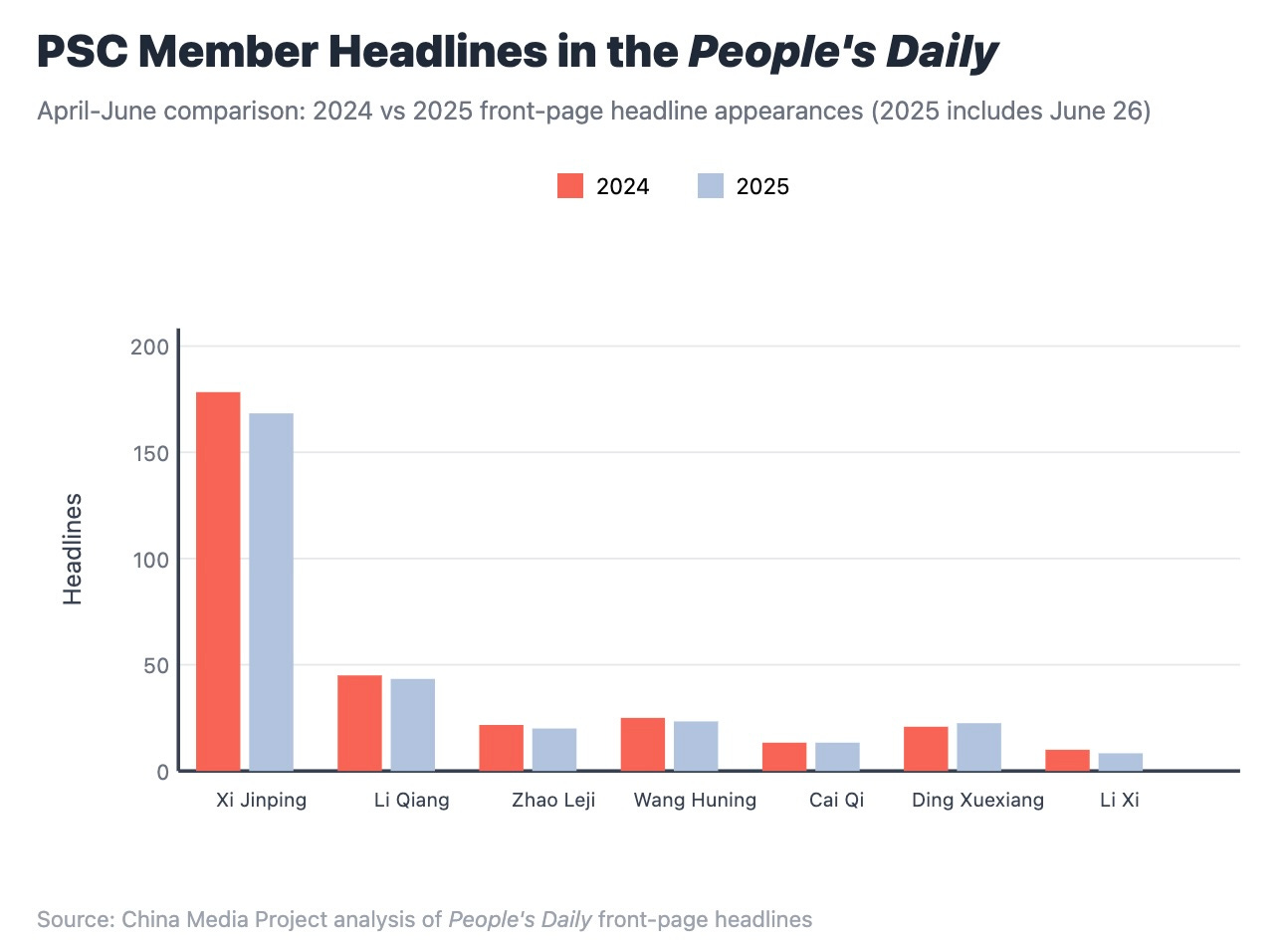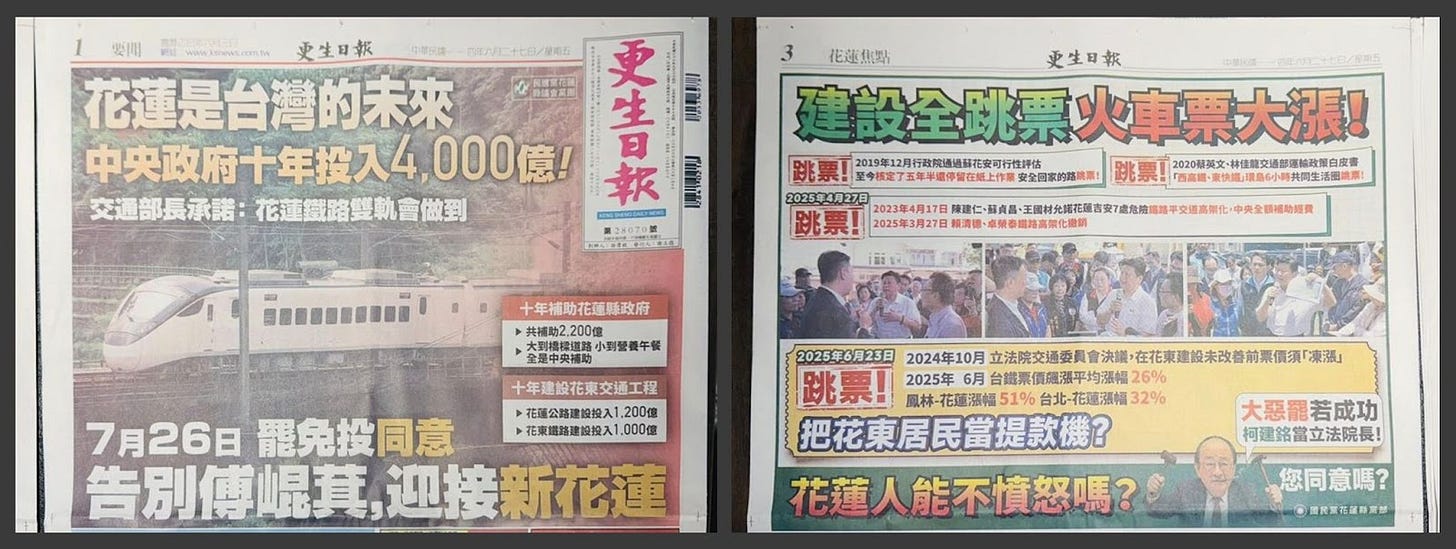Lingua Sinica Newsletter, 1 July
News, analysis, and commentary on Chinese-language media from the PRC and beyond.
Welcome back to Lingua Sinica.
Today, July 1, is Establishment Day in Hong Kong, marking the 28th anniversary of the territory's handover from Britain to China. The more than 200 celebrations scheduled in the city today began this morning with a flag raising at Golden Bauhinia Square, followed by a speech by Chief Executive John Lee Ka-chiu (李家超) that closely tied national security to what he termed “delivering results.” The message was clear enough: the drive for national security since 2020 has delivered “safety, stability and development opportunities.” Why engage, then, in civil disobedience or bother clamoring for personal rights and freedoms?
Protests, of course, are one crucial part of Hong Kong’s July 1 tradition that will be conspicuously absent today. In years past, July 1 was an important day of protest as Hong Kongers massed peacefully each year to push for universal suffrage and democratic reforms. Six years ago, following many weeks of protests against a proposed extradition amendment many feared would erode Hong Kong's judicial independence, more than 260,000 protesters took to the streets.
No more.
Today, even “soft resistance” (軟對抗), referring to indirect attempts to express dissatisfaction with the government, is in the cross-hairs under the framework of national security. On Sunday, Hong Kong Secretary for Justice Paul Lam (林定國) suggested in an interview with the online outlet HK01 that even acts of "soft resistance" not strictly illegal should be regarded nonetheless as harmful to society. Forms of quiet, everyday resistance — such as local businesses printing vaguely anti-China messages on their customer receipts — could be deemed harmful under Lam's vague notion that "you cannot say that just because it doesn't violate the law, you can ignore it" (唔可以話,唔違反法律就可以漠視佢).
Apparently, some self-declared “patriots” in Hong Kong also feel now that it is an unacceptable act of “soft resistance” for media in the territory to not report on certain positive stories about China at a time “when some Hong Kong residents are unappreciative of their motherland.” Without question, things are tougher for the media in the city than ever. But as the investigative series we share further down from The Collective (集誌社) illustrates, strong journalism remains possible — even if a constant challenge. Where it does happen, it should be recognized and saluted. More importantly, it should be supported. If that matters to you, head right over to The Collective and become a subscriber. And perhaps also consider visiting the donation page at the Hong Kong Free Press as it commemorates its 10th anniversary.
But enough from me. On to our selection of stories.
Enjoy!
David L. Bandurski
CMP Executive Director
CHINA NEWSPEAK
Is Xi's Grip Holding?
News of the general secretary’s decline is greatly exaggerated.
Speculation about Xi Jinping's waning influence intensified late last month following news of his planned absence from this week’s BRICS summit in Rio, on top of reports suggesting his presence in China’s state-run media has declined. Willy Wo-Lap Lam at the Jamestown Foundation's China Brief noted that "citations of Xi's name have become thinner and thinner in authoritative official media," raising questions about potential leadership changes as China approaches its next Party congress.
However, our analysis of front-page headlines in the Party’s official People's Daily challenges this narrative. Comparing the second quarters of 2024 and 2025, we found that Xi appeared in headlines 177 times versus 157 times respectively — a modest decline likely explained by incomplete June 2025 data. More significantly, Premier Li Qiang, Xi's closest competitor, showed virtually no change with 45 appearances in 2024 and 43 in 2025.
While these headline counts cannot capture insider dynamics or leadership effectiveness, they hardly suggest a power shift in the Party's most important publication. Xi's dominance in China's authoritative media remains intact — contradicting speculation about his declining grip on power. The data suggests China's most powerful leader in generations continues to command overwhelming media attention. Read more on this at the China Media Project website.
FLASHPOINTS
Tension Talks
Ten speeches planned by Taiwan’s leader will be 10 reasons for China’s state media to get bent out of shape.
President Lai Ching-te (賴清德) of Taiwan's ruling Democratic Progressive Party (DPP) launched his "Ten Talks on National Unity" (團結國家十講) series June 22 with a sweeping historical narrative designed to reinforce Taiwan's sovereignty amid deep political divisions surrounding constitutional gridlock, legislative paralysis, and an unprecedented recall campaign targeting 24 lawmakers from the opposition Kuomintang (KMT). Dismissing Taiwan as "the island" and referring to Lai's "so-called Ten Talks on National Unity," China's state-run Global Times (環球時報) described the initiative as "a desperate political show" and "hypocritical political rhetoric." The Chinese Communist Party's People's Daily newspaper fired back with a commentary the same day under the official pen name Wang Ping (王平), which has been used as a moniker for denunciation of politics in Taiwan.
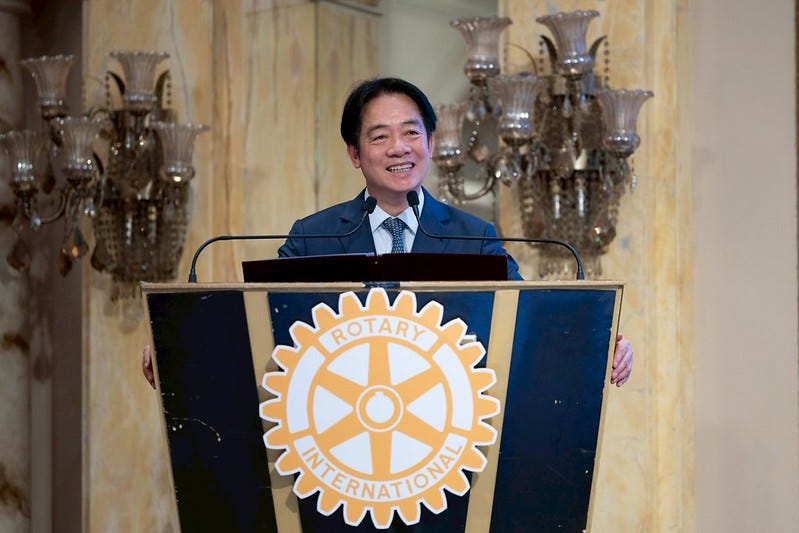
Speaking to members of Rotary International (國際扶輪社), an international service organization first formed in Taiwan in 1948 and having a strong connection to business leaders and professionals in the country, Lai deployed familiar talking points about Taiwan's prehistoric independence — from 40,000-year-old mammoth fossils to Austronesian cultural origins — while poking holes in the CCP leadership’s "One China" principle through legal particulars surrounding UN Resolution 2758. The speech was made available through Lai's Facebook account. Opposition critics immediately denounced the talks as political theater designed to shore up support ahead of the mass slate of recall votes on July 26 (See “Paper Trails” below).
(NOT) IN THE NEWS
Rising Waters, Drops of Coverage
Record-breaking floods displacing at least 400,000 in China were drowned out by US missile strike coverage.
Missile strikes by Israel and the United States against nuclear sites in Iran have topped headlines across the world last month. In China, where the story trended on the hot search (热搜) lists of Baidu, WeChat (微信) and RedNote, it also drowned out news of record-breaking floods that displaced more than 400,000 people in Hunan province alone.
Beginning June 18, heavy rains triggered the worst flooding since 1998 in Hunan, inundating entire cities. Similar flooding struck Guangdong province and the municipality of Chongqing. Despite affecting hundreds of millions of Chinese in the region, the domestic disaster struggled for attention as social media feeds filled with news of US missile strikes on Iranian nuclear sites — and warnings from Chinese state media that that American bunker-penetrating bombs would make the world a more dangerous place. (Read more of CMP's analysis here on the sidelining of flooding coverage last week.)
With floods this past weekend inundating parts of the western province of Guizhou for the second time in the space of a week, the domestic blind spot toward the severe flooding season in China's media seems now to have eased moderately, with the official Xinhua News Agency reporting in a release shared across multiple outlets that "the flood disaster in Rongjiang County, Guizhou Province, has been tugging at everyone's hearts."

AI IN FOCUS
DeepSeek’s Democratic Deficit
It’s time to pay closer attention to what China’s domestic AI models could mean internationally.
DeepSeek's R1 AI model, released in February, has been rapidly adopted by governments and companies worldwide, including India's government and American tech multinational Nvidia. Meanwhile, China's government has promoted the model as democratizing AI access. "DeepSeek has accelerated the democratization of the latest AI advancements," China's embassy in Australia declared back in March this year.
Much of the hype around DeepSeek is premised on the idea that the model can be "de-censored" — training out of its embedded PRC biases. But our research at the China Media Project questions this premise, suggesting the model risks becoming a vehicle for the global spread of Chinese Communist Party narratives and authoritarian influence rather than genuine democratization of information. Our work suggests the model's biases run deeper than simple censorship, and that even "uncensored" versions continue spreading CCP disinformation — for example claiming Taiwan has been "part of China since ancient times."
CMP researcher Alex Colville writes: “Open-source can mean, broadly speaking, greater democratic decision of the benefits of AI. But if crucial aspects of the open-source AI shared across the world perpetuate the values of a closed society with narrow political agendas — what might that mean?"
Learn more about this important issue at the China Media Project.
PAPER TRAILS
Dueling Ads
A newspaper in Taiwan’s Hualien runs competing political advertisements on the same day, sparking social media buzz ahead of a crucial recall vote.
Keng Sheng Daily News (更生日報), the largest newspaper in the eastern coastal Taiwanese city of Hualien, found itself at the center of political theater late last week when it published advertisements from both sides of an upcoming recall election in the same daily edition. Taiwan is presently in the midst of an intensifying recall campaign that could mean early ejection from office for 24 directly elected lawmakers from the opposition Kuomintang (KMT) party. The recall votes are scheduled for July 26. (Read this English explainer from Taiwan’s Commonwealth magazine.)
The Keng Sheng Daily News front page featured a Democratic Progressive Party (DPP) ad targeting a local KMT legislator and urging voters to "Say goodbye to Fu Kun-chi, [and to] welcome a new Hualien." Inside pages carried a starkly different message from the KMT county office, criticizing the DPP with headlines like, “Construction promises broken, train fares soaring." Radio and TV host Lin Yu-hui (林育卉), who shared photos of the newspaper on social media, declared: "Hualien's Keng Sheng battle officially begins" (花蓮更生大戰正式開打). The unusual juxtaposition drew widespread online commentary, with readers calling it "spectacular" and "worth collecting".
Historically aligned with the opposition KMT, the newspaper appears to be taking paid advertisements from both parties as Taiwan prepares for multiple recall elections. Inter-party politics can be bitter — but so is the battle for media survival.
(MIS)INFORMATION
Demonstration Deception
TPP chairman faces investigation after admitting to fabricating video footage used to attack prosecutors during legislative questioning.
Huang Kuo-chang (黃國昌), the chairman of the Taiwan People's Party (TPP), the center-left political party formed in 2019 by now-jailed former Taipei mayor Ko Wen-je (柯文哲) and in coalition with the KMT, faces criminal investigation after playing what he called a "demonstration tape" (示範帶) during legislative questioning of Justice Minister Cheng Ming-chien (鄭銘謙) on June 16 about alleged misconduct by prosecutors under the current government.
The audio, which purported to show prosecutorial misconduct against a suspect named "Mr. Chu," appeared to feature a prosecutor conducting a harsh interrogation using threatening language, but Huang later admitted to having created the recording himself. Fellow TPP legislator Zhang Qi-kai (張啓楷) complicated matters by claiming to have listened repeatedly to "the entire Ko Wen-je case prosecutor interrogation CD" — implying there had been misconduct in the case against the former Taipei mayor and TPP leader.
The Taipei District Prosecutors Office has opened an investigation into potential document forgery. Critics, meanwhile, compare the incident to Taiwan's "funeral rice" (腳尾飯) scandal of 2005, in which Taipei city councilor Wang Yu-cheng (王育誠) was found to have staged video purporting to show that funeral parlor workers were selling leftover "funeral rice" (food offerings set beside corpses during funerals) to civilian restaurants — an apparent bid to embarrass the KMT city administration of then-mayor Ma Ying-jeou (馬英九).
SHORT STORIES
| Hong Kong |
Youth Exchange Scandal
In a series of four investigative reports published starting last week, the independent Hong Kong outlet The Collective (集誌社) exposed potential irregularities in a government-funded mainland China internship program. According to the series, the budget of the Funding Scheme for Youth Internship in the Mainland has ballooned from HK$23 million in 2014 to over HK$113 million this year, with mainland programs this year accounting for 87 percent of Hong Kong's overseas exchange budget. The Collective's investigation found that over half of audited projects violated guidelines by failing to publish financial reports, while some organizations with questionable backgrounds received millions in funding. Among the recipients, the series alleges, three companies linked to All-China Youth Federation member Wong Yiu-ying (王耀瑩) secured HK$23 million across 18 projects over three years, despite having websites created on identical dates and posting synchronized content.
Read On: Report 1 | Report 2 | Report 3 | Report 4
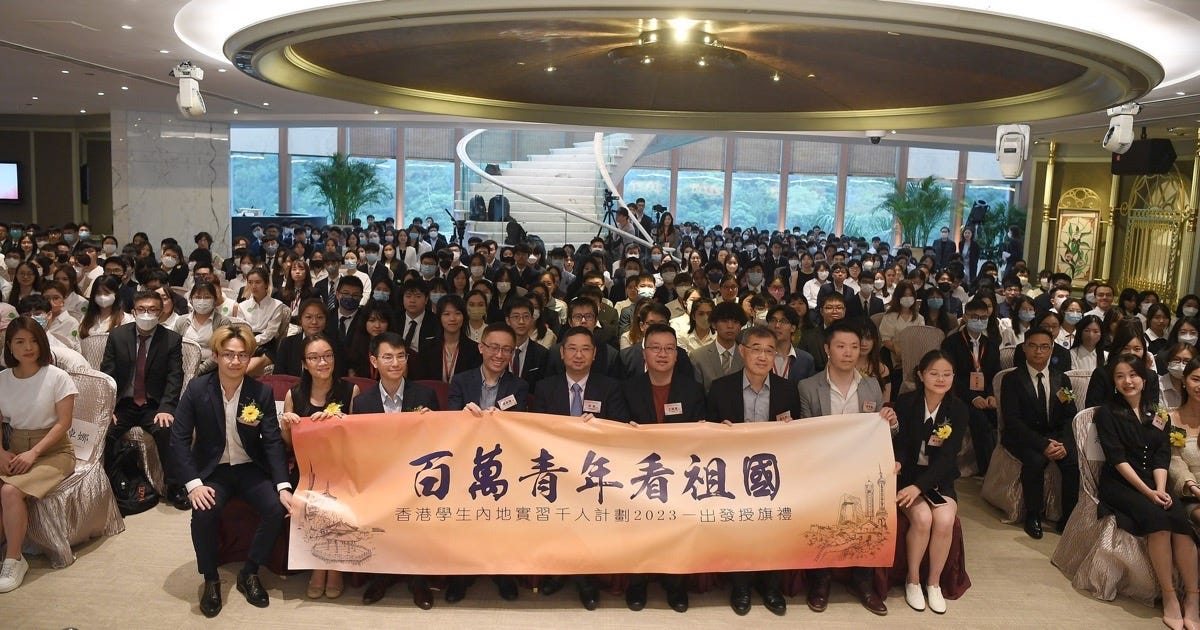
Going Away Parties
The League of Social Democrats (社會民主連線) announced its dissolution Sunday after nearly two decades of political activism in Hong Kong, with chairwoman Chan Po-ying (陳寶瑩) citing "tremendous political pressure" (強大的政治壓力) and concern for members' safety. The left-wing party, founded in 2006 by prominent democracy advocates including "Long Hair" Leung Kwok-hung (梁國雄) and Wong Yuk-man (黃毓民), once held three legislative seats and championed street protests with the slogan "resistance within and outside the legislature." The Collective (集誌社) reserved comment on the story, posting instead an image gallery (below) of the party's closure. Also reporting the news, Taiwan's CNA compiled a list of the nine parties disbanded in Hong Kong to date. Pro-Beijing media welcomed the move, with Wen Wei Po describing the organization as having "troubled Hong Kong for 20 years."
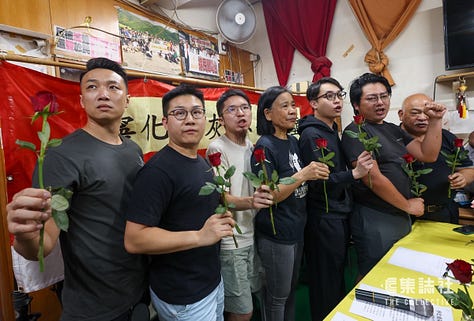
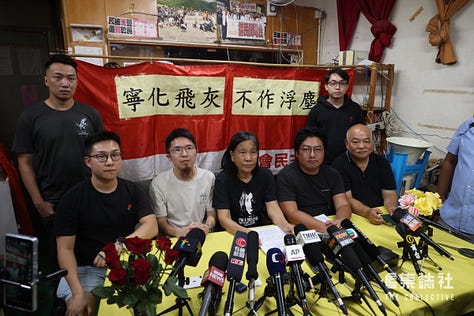
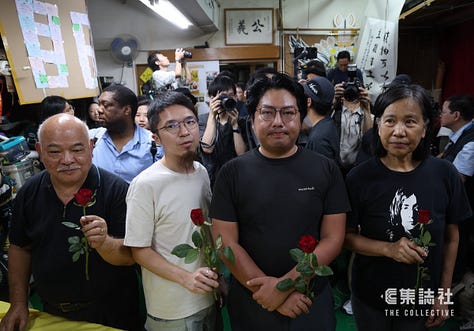
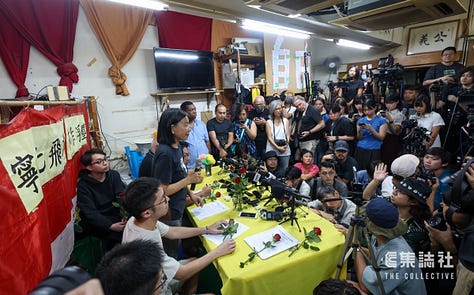
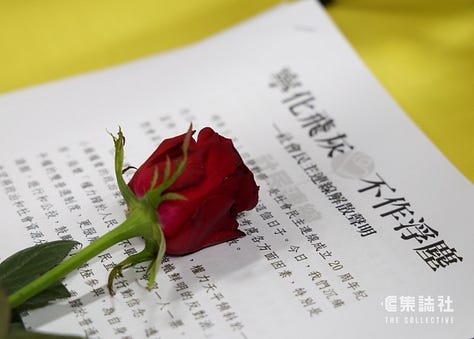
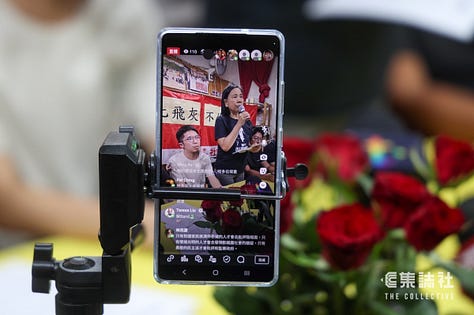
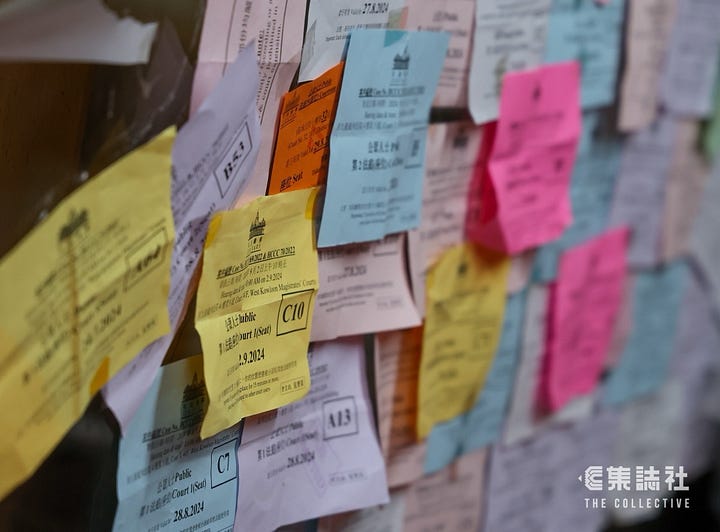
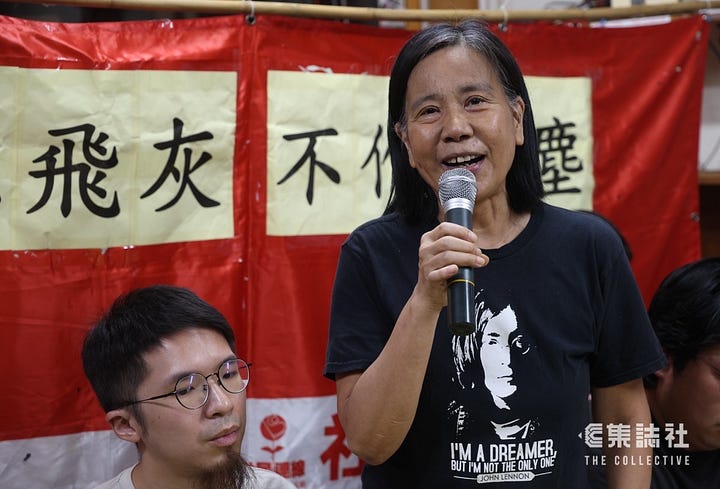
| Taiwan |
Media Malfeasance
Taiwan's Mainland Affairs Council (陸委會) severely condemned the China Times (中國時報) newspaper on June 18 for falsely reporting that former president Ma Ying-jeou (馬英九) had reported his China itinerary to the MAC before attending the Cross-Strait Forum in Xiamen on June 15, and that the council had leaked information to specific media outlets. Ma, the MAC said, is no longer required to report travel plans to mainland China, and had not submitted any meeting details for his recent trip. The reporting of false information by the China Times, the council said, was particularly egregious following corrections made publicly two days before the outlet's report. The incident highlights ongoing tensions between government agencies in Taiwan and pro-Beijing media outlets.
Revenue Robbers
Media executives and journalism scholars in Taiwan are pushing for legislation establishing a Media Bargaining Act (媒體議價法) that would force digital platforms like Google and Meta to pay news outlets for content usage. Accusing platforms of capturing 70 percent of Taiwan's digital advertising revenue while using media content for free, more than 1,500 academics and industry professionals signed a petition last month demanding immediate legislative action. National Taiwan University (NTU) journalism professor Lin Li-yun (林麗雲) described the situation as a "systemic crisis" for the media industry, while Taiwan Normal University's Wang Wei-ching (王維菁) warned that government inaction would make it "an enemy of journalism scholars and the news industry." The proposed legislation includes provisions for mandatory revenue-sharing and the establishment of a journalism fund, with supporters noting that Taiwan's digital advertising grew from NT$11.6 billion to NT$61 billion between 2012-2023 while traditional media advertising collapsed from NT$42.5 billion to NT$21 billion.
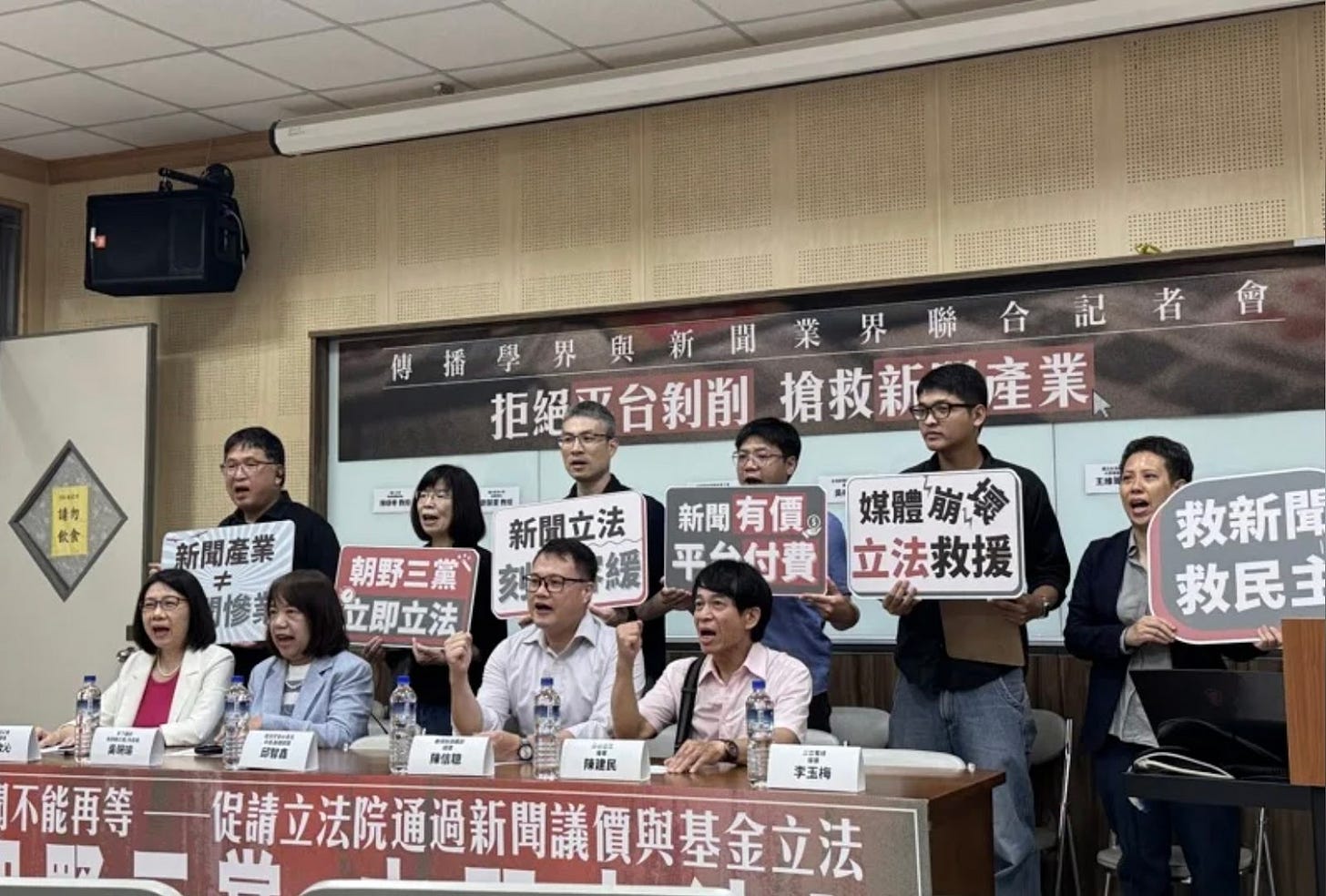
| China |
Sickening Influence
A food livestreamer in Hangzhou, Zhejiang required surgery after a toothbrush used to induce vomiting became lodged in their stomach, according to a report this month by Shanghai's The Paper. The incident highlights dangerous practices among "competitive eating,” or “big stomach king" (大胃王) streamers who consume massive quantities of food for online content in single sessions that can last for hours. The Paper sharply criticized these displays as prioritizing online traffic over personal safety — noting, moreover, that these acts violated China's Anti-Food Waste Law (反食品浪费法), which took effect in 2021 as part of a national austerity drive. Despite repeated crackdowns by internet regulators, such content continues appearing on platforms, prompting calls for stricter enforcement to eliminate what critics describe as "eating one's life away" (吃命).
Prohibitions and Protections
The Cyberspace Administration of China (CAC) issued draft measures on June 20 for classifying online information that may affect minors' physical and mental health. The measures, relatively free of explicit political control language typical in CAC documents, would require platforms to add warning labels to content including sexual innuendo, cyberbullying, extreme emotions, unsafe behaviors, celebrity worship, and "unhealthy lifestyle" promotion. However, the measures also target normal youth interests such as participation in "fandoms" (饭圈), organized online communities centered around celebrities, that can result in unwanted group formations online. Platforms must prevent such content from appearing on homepages, trending lists, or recommendation algorithms. Public comments are being accepted until July 19, though such consultations typically result in minimal changes.
| Southeast Asia |
Museum Diplomacy
In China's latest push to extend its cultural influence among overseas Chinese communities in Southeast Asia, a group of seven founding institutions officially launched a museum alliance in Kuala Lumpur on June 26, the Sin Chew Daily (星洲日报) reported. Among the institutions behind the formation of the Maritime Silk Road Chinese Museum Alliance (海上丝绸之路华侨华人博物馆联盟) — inaugurated at the Malaysian Chinese Assembly Hall (马来西亚中华大会堂) — is China's Guangdong Overseas Chinese Museum (广东华侨博物馆), which is operated by the Overseas Chinese Affairs Office of Guangdong's provincial government and is part of the national structure of the CCP's United Front Work Department (UFWD). According to Harian InHua (印華日報), an Indonesian Chinese-language outlet, the alliance, which unites 61 museums across Southeast Asia and China, says its role is to preserve and promote overseas Chinese heritage and collaboration among diaspora communities. The concept of maritime trade routes as a connecting tissue of course also accommodates Beijing's framing of the organization to advance its foreign policy goals in the region.
SPOTLIGHT
Fatal Custody
An exposé on China’s residential surveillance system rapidly vanishes.
Caixin, one of China's leading professional current affairs media, published a 20,000-character exposé on June 17 revealing the torture death of Bao Qinrui (暴钦瑞) under police custody, before authorities swiftly deleted the report from all platforms. Journalist Wang Heyan (王和岩), who has long led investigative work at the outlet, revealed how Bao, a 33-year-old navy veteran, died on his 13th day under Residential Surveillance at a Designated Location (RSDL) in July 2022. Police in Shijiazhuang, the capital of Hebei province, had detained Bao's family on trumped-up charges based on a false tip from a village rival seeking revenge over land disputes, the report alleged.
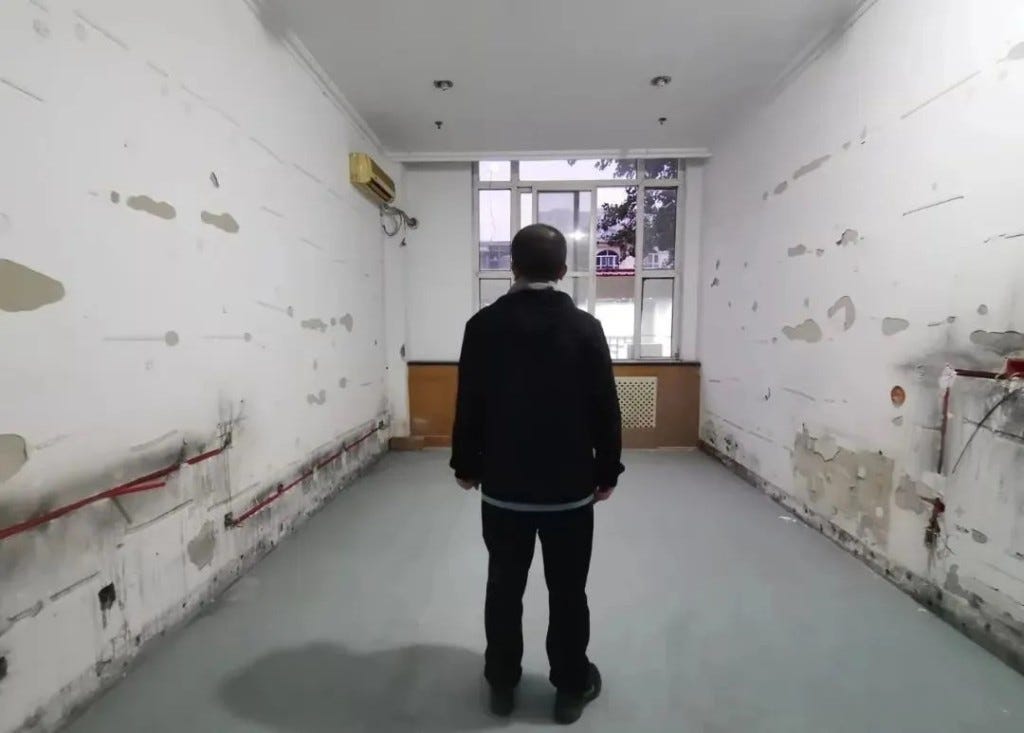
Beijing Youth Daily In-Depth (北青深度), Southern Weekly (南方周末) and other media previously reported on Bao's case, revealing the horrific conditions inside the Xinle Hotel rooms where he was held under RSDL, including images of the detention facilities and the foam padding that had been removed from walls after his death. Wang's investigation provided additional depth to the story, revealing how police had used electric batons, PVC pipes, iron cages, and sexual humiliation against the detained family members. Court documents showed officers forced Bao into stress positions, repeatedly beat his feet, and subjected him to electric shocks that caused fatal blood clots leading to pulmonary embolism. The report described how RSDL, which operates outside normal detention facilities, "in reality often becomes distorted, creating conditions for some law enforcement officers to evade supervision and facilitating exhaustion interrogation and torture." Twelve officers now face trial, though none have been sentenced.





